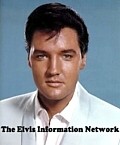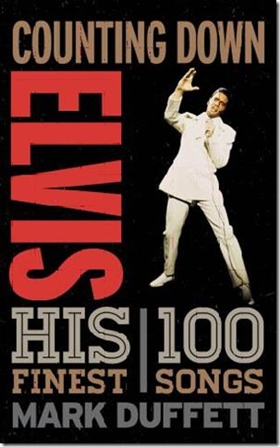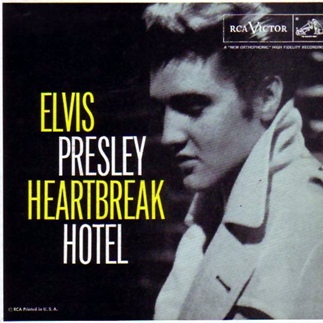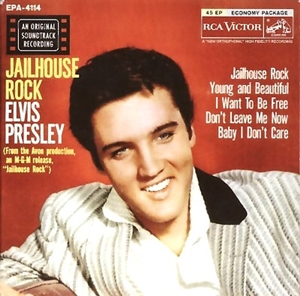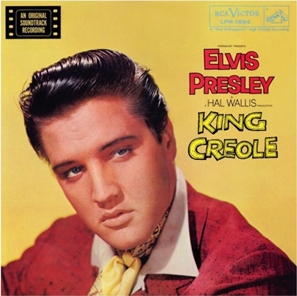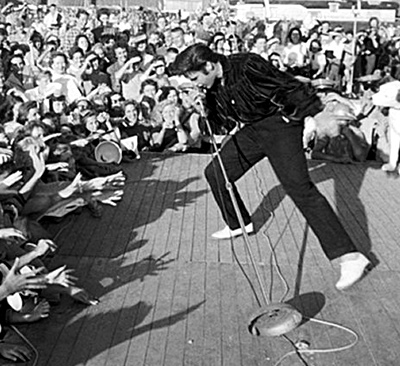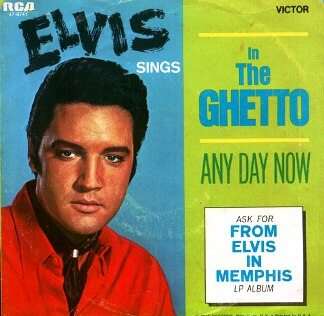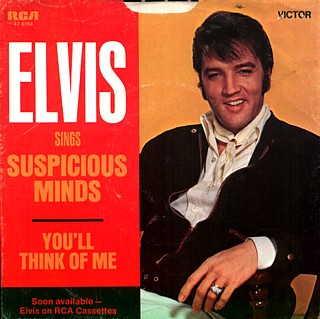 |
 |

Interview conducted by Nigel Patterson, March 2018 EIN's review of Counting Down Elvis His 100 Finest Songs will be published shortly
Introduction: Dr. Mark Duffett is Reader in media and cultural studies at the University of Chester in England. He is widely recognised as an expert on popular music and music fandom, a role cemented by the publication of his book Understanding Fandom (2013). Dr Duffett's PhD thesis was about Elvis Fandom. Dr Duffett's latest book, Counting Down Elvis His 100 Finest Songs is a celebratory approach to the Elvis songbook, an incisive and illuminating consideration of the cream of his vast recording output. The listing is actually of 200 songs (the top 100 appraised with fascinating and insightful background information). Counting Down Elvis His Finest 100 Songs is available in both hardcover and Kindle editions. Dr Duffett recently took time out of his busy schedule to talk to EIN's Nigel Patterson about his new book and a range of related subjects including the difficulties in comparing songs from different genres, Elvis' film soundtracks, how music celebrity and fandom interact as a type of shared social system, Elvis as a social phenomenon, "why" Elvis appeals, and the importance of contradictions in Elvis' life. Join us for a fascinating interview...... EIN Note: We have deliberately avoided questions in this interview around specific recordings in Dr Duffett's listing. Our review of Counting Down Elvis His 100 Finest Recordings will examine various songs in the countdown. EIN: Mark, please tell us a little about the Mark Duffett story. MD: I’m not sure that there is much of a ‘story’! I’ve spent my adult life as a student, university lecturer and researcher, one who specializes in understanding music fandom in general and Elvis fan culture in particular. Initially I studied at geography Oxford University, then I did an MA in Vancouver, Canada. At the end of the last century, I completed a PhD on music fandom at what was then the University of Wales in Aberystwyth. I chose Elvis as my subject matter because he had such a loyal and prominent fan base. When I started on my path back then, I hardly knew anything about Elvis or about his fan community. Julie Mundy led the British fan club (OEPFC) at that time. She encouraged me to visit a week-long fan convention in Mablethorpe. My research took off from there. I’ve been to some Elvis events over the years, and at one I met my partner. I am still in touch with the fans I met in 1997. As I have been gradually drawn in to Elvis world, I’ve become a much bigger fan myself. Since I finished the PhD, I’ve worked continuously at the University of Chester, been to Memphis a few times, and written a book called Understanding Fandom (2013). I’ve also been invited to Moscow and other places to talk about my research. In 2017, I was keynote speaker at a small UK academic conference on Elvis, and I also organized one in Memphis. EIN: How did Counting Down Elvis come about? MD: I saw that the publisher, Rowman & Littlefield, had a special music book series where each addition reviewed 100 other books. They had one volume, for example, recommending 100 books on the blues. So I contacted their commissioning editor with a suggestion that I might put my research library to good use, and offer a guide to the best writing on Elvis. The editor shifted me across to a different series called ‘Counting Down’ where the aim was to look directly at songs instead. I took it as an opportunity to really analyse Elvis’s musical creativity. I wanted to take the discussion further, express myself as a fan, and give something back to Elvis world. I hope I’ve succeeded. My ideal was that you could give it to someone who didn’t quite recognize Elvis’s genius to help them understand. It would begin to explain, “Okay, this is what makes Elvis such an amazing artist.” Of course, for your readers, listening to the music makes that self-evident, but there is also a pleasure in attempting to pinpoint it in words, too. I hope even the most dedicated fans will also learn something from the book, and think again, or at least be entertained. EIN: How painstaking was the process of reducing Elvis’ entire recorded catalogue of more than 700 songs to 200? MD: I have to admit here that I didn’t sit down and patiently listen to each of the 700 songs again alongside one another. That would have been an interesting, but very time-consuming approach. If I’d have done as much and tried to make the case for lots of obscure recordings, the book would only have worked for very dedicated fans. After two decades of listening to Elvis, I had heard a lot of material, and had a fair idea of his 200 best better known works. I dare say there might be a few lesser known gems out there I missed. That was acceptable to me because I knew people would want to read about signature material. Without simply following existing popularity polls or chart places, I wanted the book to broadly reflect Elvis’s known catalogue. Instead of painstakingly piecing together a rank of all 700, I put my efforts into doing detailed research on the ones that I picked. That said, the process of the research itself turned me on to more rarities, different takes and things. Maybe a book should be done on the best 100 of Elvis’s least known songs! That wasn’t in the brief from my publisher.
EIN: Compiling a ‘best of’ type list is inherently subjective and often leads to vigorous debate between readers. Was this one of your objectives in writing Counting Down Elvis? MD: Yes and no... I never decided on choices or rankings deliberately to court controversy. However, I doubt anyone with agree my all of my choices. For me, the format of the top 100 was really an excuse to think more deeply about what makes Elvis’s music so amazing. The book’s ranking format was an opportunity to do further research and create some insightful interpretations. It might seem a surprising thing to say, but we have to remember that, with a few honourable exceptions aside, there have been relatively few serious discussions of Elvis’s actual music beyond specialist fan circles. There has been some deep historical research about how the music was made, but it is much rarer to see any contextualization or detailed critical assessment of Elvis’s material. Most of the mainstream discussion about him has been about what he was like as a person, how he lived, and who he hung out with. Elvis’s music has often come last on the list. To me, that is a tragedy, as his music was his passion and his art. It is the place where, in large part, you get to see who Elvis was and what he was about. It reflected his gift and expressed his values. EIN: How can you compare songs from different genres, for example ranking King Creole compared to Memories (both of which have great musical and interpretive strengths)? MD: The book is based on an evaluation of individual songs, rather than seeing them as representatives of particular genres. I have no idea how anyone could compare genres. I mean, who could say whether the best of Elvis’s Sun rockabilly material is better than the best of his gospel output? I think that is a nonsense, but maybe I could talk about individual songs in terms of how great I thought they were. Maybe I could take the initial releases of, say, ‘Jailhouse Rock’ and ‘Fort Lauderdale Chamber of Commerce’ and make a critical judgement about their overall comparative quality. In an era of music streaming, and play listing, perhaps that approach makes more sense. As an author, the series gave me a format, but I don’t think the book’s strength is actually in the question of whether it ‘accurately’ ranks individual examples of Elvis’s output. It was much more a case of celebrating the best what he did, and saying why it deserves such detailed appreciation. EIN: Without giving away the #1 song in Counting Down Elvis, is it also your favourite song?MD: It is my favourite Elvis song. I also chose it in part because it was the song that brought all the strands of Elvis’s mission together. He did plenty of other great songs, but for me none embodied what he stood for quite so clearly or so well. I hope in that sense the book builds and has a kind of narrative, almost. EIN: If you were to compile a listing of Elvis finest songs in say five years’ time, do you think the listing order would differ? MD: Absolutely. Preferences don’t stand still. They change with our understanding. The order differed even while I was writing the book. Certain songs, like some of Elvis’s stronger 1970s live ballads, moved forward in the ranking. In five years’ time, I hope I will have further matured as a person. Other songs will likely appeal, and we might have different versions available.
EIN: What reaction have you had to Counting Down Elvis? MD: When you put years of time into creating something, you hope people will like it. I’m delighted to say that the earliest evaluations we’ve had, both inside and outside the Elvis world, have been phenomenal. My publishers thought Elvis fans might buy the book anyway, so they focused on recommendations from people who might appeal to a general readership. We managed to get GQ editor Dylan Jones to take a look. He called it “Elvis catnip”! Publishers’ Weekly said it was “ energetic and insightful… Though he clearly prefers the rocking Presley of ‘Heartbreak Hotel’ (at #4) to the country Presley of ‘Gentle on My Mind’ (#91), he expertly conveys the subtleties of both performances… Elvis Presley fans will find this a fascinating and useful look at the King’s work.” BookList noted, “ Casual and dedicated fans alike will enjoy Duffett’s appreciation of Elvis discography… Fascinating commentary is provided by composers, producers, musicians, and music scholars, including the author. Another list (unannotated) of 100 songs follows, and that in turn is followed by more than 500 notes and a substantial bibliography.” My favourite appraisal, though, came from the book’s first Amazon reviewer, Robert S. Harmon, who called it “ one of the most interesting and informative books on Elvis Presley that I have in my collection of well over fifty.” He added, “I have well known books by biographer Peter Guralnick and record producer Ernst Jørgensen that I treasure, but this book may end up being my favourite one that I pick up and scan often, even though it includes no pictures, as it is well researched, thoughtful and offers a different perspective on his greatest songs than you usually get with most modern music critics.” Even to be mentioned in the same sentence as Guralnick and Jørgensen is very flattering. I couldn’t have asked for a better reception. EIN: Mark, apart from Counting Down Elvis you have written a number of books on the very interesting area of fan culture and your PhD thesis was on Elvis Fandom. Please tell us about your research on fan culture, particularly as it applies to Elvis. MD: I’ve only written one academic book, called Understanding Fandom (2013), which is a student’s guide to theories about media fandom. I have edited a couple of others. My research on Elvis fandom has not really been about Elvis himself or his music, but rather about how fans have built a culture on the basis of those things. Using Elvis as a case study, I wanted to explain how music celebrity and music fandom operate together as a kind of shared social system, one based on a kind of mutual exchange, some might say an exchange of love. Unlike some of my colleagues, I did not think that Elvis was treated like a religious deity by his fans. Rather, he was made a socially important person. Elvis had immense talent. His talent prompted a huge audience response. I’d say that is true, but it is only half the story. We now consume Elvis’s music in full knowledge of his super-stardom, something which includes his global popularity. My theory was that, once a person becomes seduced by Elvis’s performance, their excitement is not unconnected to his popularity. It’s not that Elvis fans just follow someone who is popular, however. People have to be swayed by the performance. Then it’s as if they find an energy. I think that energy has to do with the singer’s immense fame. Elvis always had a voice that could move people, but his fame moved fans to new heights of excitement. To put it another way, you can be interested in someone who is not famous, but you can only be “star struck” by a famous person. That became Elvis’s social role, and his music was a vehicle for intimacy which allowed it all to happen. The beauty of this theory is that it accounts for audience excitement without resorting to supernatural explanations, though I realize people like them! It also helps to explain why fans want to promote Elvis’s music to others. Finally, it accommodates the diverse forms of identification they have with him. I mean, we all connect with Elvis, but our interests can be quite diverse. Some Elvis fans greatly prefer particular parts of his musical output or career. He has blind fans and deaf fans. How do you account for that? Any good explanation has to address such diversity. On top of that, once Elvis’s fan base was established, it became a the premise for actual communities of fans, in fan clubs, who shared of aims, ethics and histories. Studying all that is quite a complex area. So I’m saying that Elvis used as a totem and achieved the place of an icon: someone made a centre of attention, someone whom fans felt a thrill to get near. As we know, however, Elvis was all too human, not a god. As a performer he was at home with his iconic role, but it was evidently a lot for anyone to handle. Of course, you might say, well, I could be talking about any famous singer. I’d say, yes, but Elvis made his stardom his own, and worked that role better than any other star. And that was part of his genius. He found his way into the emotional core of songs and created an amazing live spectacle on stage. His ‘country boy’ image helped, because nobody thought he would act snobby or superior if they met him. As for the uniqueness of his charm and his music, I address those aspects in Counting Down Elvis. MD: Yes: people sometimes forget that before Beatlemania, there was ‘Elvis mania’! Johnnie Ray is the missing link in your discussion, however, as he also ignited the passions of teenagers. Scholars like Richard Peterson have discussed the ways in which the music industry changed in the 1950s. Beyond all the marketing and hype, there was Elvis himself. His Southern identity and adaption of black music played into an era where sexual excitement was more publically expressed by girls. Initially, it seems, Elvis himself may have been innocent to that. Nevertheless, he used his body in ways that Frank Sinatra did not, with a performance that suited the recently adopted medium of television. He was a unique and powerful singer, and fans responded. Marketing was not the only element at play, as the times were rapidly changing. We have to consider things like youth culture, gender relations and expectations around civil rights. Some researchers might also make a case for much broader historical changes: things like the changing shape of the world during the Cold War. EIN: Fandom is apparent in genres other than popular music, as evidenced by the growth and prominence of comic conventions with their emphasis on science fiction media. Are there intrinsic differences between the growth of and experience in fandom between different genres? MD: Personally, I think celebrity fandom is significantly different to fandom based on a fictional or fantasy story, though the lines blur in various ways. Recent media theory tends to put the focus on the actions of the fans rather than the connections they have with their heroes. I see those connections as inspirations for the fans’ actions. Although media fans focus on different interests, what we can say is that they can share practices, such as collecting, and can have motivations in common. Many of us are also fans of several things at once. So it depends from which end of the telescope you do the viewing: our experience as fans is unique to us, but from another perspective it is an instance of adopting a role that is already established. EIN: Many academics have published works focusing on Elvis’ cultural impact. Intriguingly, in your PhD thesis you consider “why” Elvis appeals rather than his cultural impact. Please tell us a little about what you found. MD: Yes, lots of researchers tend to ‘black box’ questions of star appeal and simply talk about the results of people having interest in a celebrity. It’s easy, and true, to say that Elvis had the “whole package” when it came to entertainment: the looks, the moves, the attitude, the music. All that is clear, but I’ll mention two more things that I think should be considered when it comes to Elvis’s appeal. First, Elvis by himself is often represented in relation to a collective group of fans. For example, concert footage shows him out front on stage while thousands fans react to him. Records let us hear his voice, while their chart positions reflect the immense size of his following. Graceland is defined by its owner, but the wall out front is marked by graffiti from hundreds of Elvis devotees. Second, Elvis’s celebrity image contains vast contradictions. When you walk into Graceland, you think about a poor boy from Tupelo, but are confronted by the mansion’s luxurious interior. His journey to the pinnacle of the American dream positions us (fans) somewhere in the middle: richer than the poor boy, but less wealthy than the generous multi-millionaire. The combination of those two elements help us to discover something positive, emotionally. Elvis’s charm was that within his role he was so uniquely human and individual. Because of that he became an icon of individuality, in a sense.
EIN: A theme of your PhD was that Elvis is a social phenomenon rather than an individual person. What do you mean by that and why is it important in considering Elvis’ impact? MD: It’s not that Elvis as an individual is not important. Nobody could have carried off Elvis’s social role quite like Elvis did. Nevertheless, my argument about his phenomenon, as an academic, is that you had to consider assumptions around his social role a bit more to understand how it has worked. In Counting Down Elvis, I take it in the opposite direction and I say you need to understand more about his music, since that was his art. Both aspects build towards the bigger picture. Fans might say, “No – it’s just the music,” but his music never existed in a vacuum. I can remember reading a fan magazine years ago where someone wrote in and said words to the effect, “If Elvis had come from a rich family, would we still be talking about him?” It’s an interesting question, because it hints that our knowledge of his background shapes our understanding. In reality, I think that Elvis’s musical performance, tremendous popularity, celebrity image and biographic story all come together to shape our experience as fans, and bring Elvis to life for us. We can’t detach one aspect from another in our experience. However, there is so much to say on each aspect that at times you almost have to write about them separately. EIN: You insightfully observe that Elvis is a ‘social phenomenon’ - does this in any way detract from or diminish what most people associate with him, namely his music? MD: Not at all; quite the opposite, in fact. Elvis’s music is a vehicle for intimacy that makes his social phenomenon work. You can put your attention on one thing or the other; it’s hard to deal with both at the same time. I think the press have sometimes neglected Elvis’s music, and simply labelled him as a kind of conjuror who commanded a mass audience. However, he couldn’t have done that without wonderful material and a mesmeric performance. As a fan, I can sit back and enjoy the music. As an academic, I want to get nearer to an explanation of his whole cultural phenomenon. EIN: Many fans are generally critical of the songs recorded for Elvis’ films in the 1960s. Is this a case of faulty hindsight? MD: No, not entirely. I mention some of the movie songs in the top 100, but proportionately there are fewer songs from the 1960s films. What happened in terms of the decline of quality of material from that period is well known, and evidently upset Elvis himself. That said, a few numbers came through as exceptions that entered his signature catalogue.
EIN: What is your view of Elvis’ film recordings? MD: I find it hard to make blanket judgements there. His 1950s films, for instance, generated some fantastic material. When Elvis was in Hollywood, as well as being a recording artist, he had to serve the demands of the movie studios. That altered the material. Perhaps we should really be thinking in terms of the use he made of material he was given, whatever its initial standard. In that sense, he maintained a high bench mark. Great songwriters and musicians lent their talent at certain times. However, we also have to think about how the films acted as promotional vehicles. Elvis’s talent was being tested less, insofar that all the film music got a lot of free advertising through cinemas compared to non-film releases. In my view, many of those sound track songs have dated poorly compared to both his 1950s and 1970s output. I’m always open to counter-arguments, though! EIN: How important is it to view the film recordings in their socio-cultural context? MD: I’d go further and say it might be useful to view all of Elvis’s material in relation to its wider historical context. Douglas Brode wrote an interesting book a few years ago called Elvis Cinema (2006), where he set each film in the context of the changing history of the 1950s and 1960s, particularly around things like evolving attitudes to dating and courtship. The films definitely were permeable to the concerns of their time, and not just stuck in the time warp often imagined. However, you are asking me more about the soundtrack material specifically. It’s evident that music publishing was a crucial part of the context there. One great study of Jean Aberbach, Restless Giant (2010) by Bar Biszick-Lockwood, has a couple of really fascinating chapters on Elvis’s publishing. Even though the author deals primarily with the 1950s, I’d recommend her book as a starting point to understanding those relationships. That was the great thing about researching Counting Down Elvis: it was an opportunity to track down different sources like that one, and to see what they could add to an understanding of the music. Closing questions: EIN: Apart from Counting Down Elvis I understand you have a another Elvis book (Elvis Presley) due to be published by Equinox Press. Please tell us about this release? MD: I actually wrote that book before Counting Down Elvis, but my editor at Equinox has been too busy to work on the manuscript. He commissioned the book for a series called Icons of Popular Music. Each volume is short in length and designed to introduce students and general readers to debates around the figure concerned. My Elvis contribution is roughly chronological in structure. It was an excuse for me to do things like watch all of Elvis’s fictional films in date order to see if I could understand them differently. I also covered the basics of things like how Elvis’s legacy has been shaped after he died. Ernst Jørgensen fascinates me in his role as a kind of ü ber-record collector acting who, in part, acts on behalf of the fans. EIN: Mark, it has been great talking with you and is there anything else you would like to say to our readers? MD: I’d like to thank your readers for taking the time to read this interview. I’d also like to thank Elvis fans out there for being such nice people! I’m a fan too, though not on the same level as some of the life-long Elvis enthusiasts out there. I don’t think it’s a case of ‘us’ academics and ‘them’ fans. Instead, it’s about roles that can overlap. I hope Counting Down Elvis demonstrates that. In a sense it was a love letter as much to Elvis’s fans as to his music. Elvis Presley wouldn’t have been who he was without his audience. I think that now he is, sadly, gone, what he represents, in part, is an opportunity to continue the conversation. We should speak about his creativity, his talent, his genius. That is an ongoing project. I hope Counting Down Elvis has taken the discussion a small step further.
|
|
